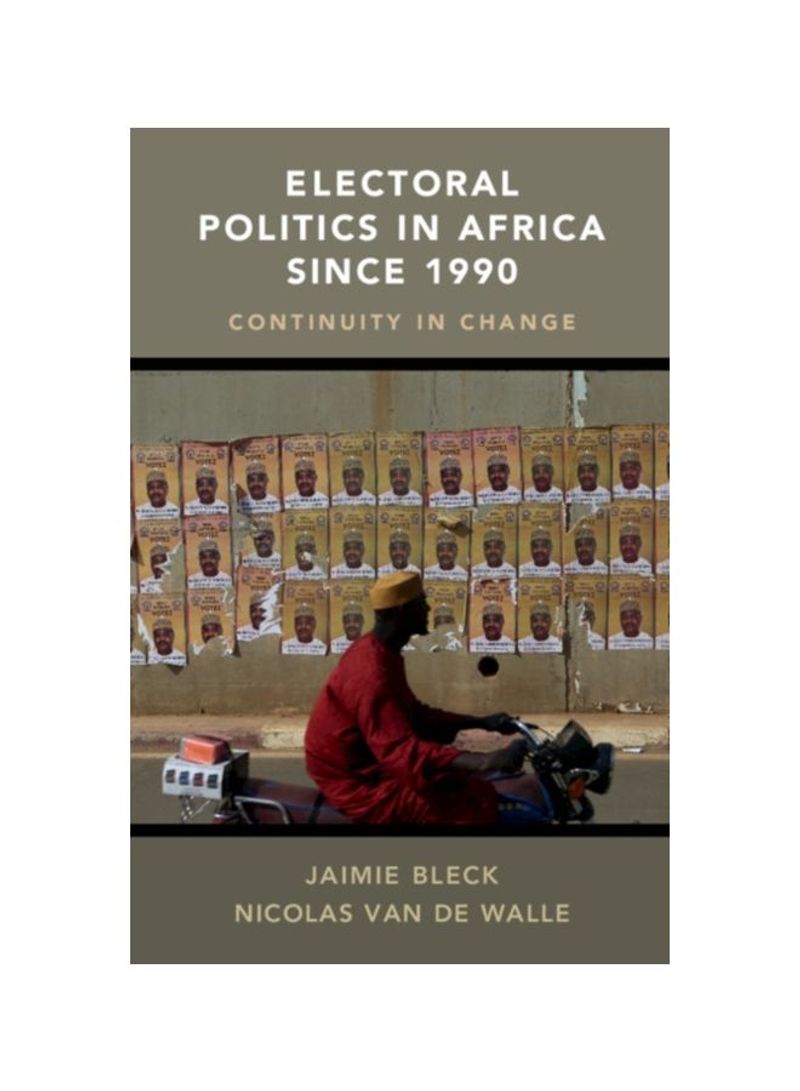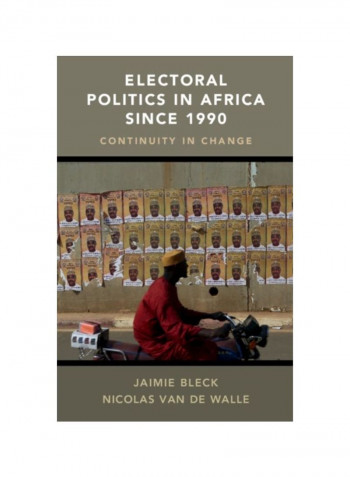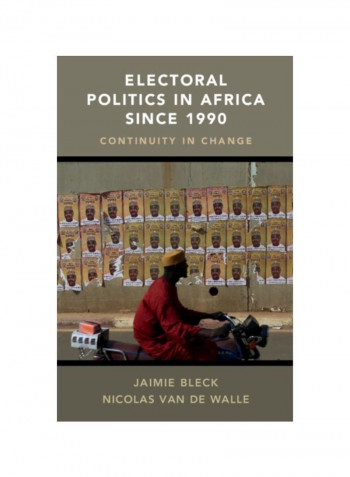Electoral Politics In Africa Since 1990 Hardcover
Recommend
Sort by
Rating
Date
Specifications
Grade
New
Author 1
Jaimie Bleck
Book Description
Democratic transitions in the early 1990s introduced a sea change in Sub-Saharan African politics. Between 1990 and 2015, several hundred competitive legislative and presidential elections were held in all but a handful of the region's countries. This book is the first comprehensive comparative analysis of the key issues, actors, and trends in these elections over the last quarter century. The book asks: what motivates African citizens to vote? What issues do candidates campaign on? How has the turn to regular elections promoted greater democracy? Has regular electoral competition made a difference for the welfare of citizens? The authors argue that regular elections have both caused significant changes in African politics and been influenced in turn by a rapidly changing continent - even if few of the political systems that now convene elections can be considered democratic, and even if many old features of African politics persist.
ISBN-13
9781107162082
Language
English
Publisher
Cambridge University Press
Publication Date
29 Nov 2018
Number of Pages
340
About the Author
Jaimie Bleck is Associate Professor of Political Science at the University of Notre Dame. Nicolas van de Walle is Maxwell M. Upson Professor of Government at Cornell University, New York.
Author 2
Nicolas Van De Walle
Editorial Review
Comprehensive, insightful, and persuasive: this book is essential reading for anyone interested in elections and democracy in Africa. We have been in need of a publication that brings the story of elections in Africa up to date for a number of years - this is the new gold standard.' NIc Cheeseman, University of Birmingham 'This book will be a landmark for African studies for many years to come. Bleck and van de Walle tackle why the move to multi-party elections has not lead to more profound political change in Africa, despite and in disjuncture with an Africa that is rapidly changing with regard to economic development, urbanization, and expanding media. Bleck and van de Walle's two explanatory factors, presidentialism and 'liability of newness', go a long way to explain the predicament of the continent.' Staffan I. Lindberg, University of Gothenburg 'Describing the features of political systems in contemporary Africa as a 'paradoxical combination of change and continuity', Bleck and van de Walle offer a compelling analysis of the last quarter century of electoral politics on the continent. Their methodical examination of the shortcomings and strengths of political parties, elections, and democratic institutions offers robust support for their claim that African countries have institutionalized multi-party politics without consolidating democracy. The implications of their findings for political accountability, citizen engagement, improved service delivery, and development across Africa are sobering.' Anne Pitcher, University of Michigan 'In this magisterial study, Bleck and van de Walle analyze elections in sub-Saharan Africa over the last quarter century ... One of the volume's major contributions is to put African elections in comparative perspective. Bleck and van de Walle's focus on the 'normality' of African elections, alongside their more unusual characteristics, offers a useful corrective to the dominant narrative of Africa's unique electoral politics.' Foreign Affairs 'The authors split the difference between Afro-pessimism and optimism about African democracy in an analytically nuanced and empirically validated way. The central argument Bleck and van de Walle make is that elections are not necessarily democratizing. Instead, elections are political moments of greater uncertainty and heightened attention to politics ... I expect to see this become a foundational text for researchers and analysts.' The Washington Post 'Bleck and van de Walle's book is an inspiring addition to African Studies with diverse empirical material and innovative attempts to answer key questions. The book is a must read for anyone interested in elections, democracy, campaigns, and political behavior in Africa.' Edalina Rodrigues Sanches, African Studies Review



